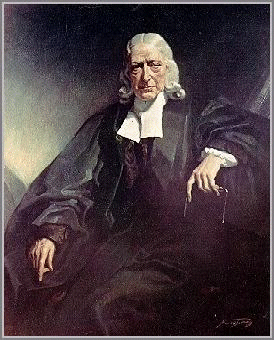| "Do all the good you can, By all the means you can, In all the ways you can, In all the places you can, At all the times you can To all the people you can As long as ever you can!" |
 |
'The Methodists must take heed to their doctrine, their experience, their practice, and their discipline. If they attend to their doctrines only, they will make the people antinomians; if to the experimental part of religion only, they will make them enthusiasts; if to the practical part only, they will make them Pharisees; and if they do not attend to their discipline, they will be like persons who bestow much pains in cultivating their garden, and put no fence round it, to save it from the wild boar of the forest."Rupert Davies, A. Raymond George, Gordon Rupp, eds. A History of The Methodist Church in Great Britain, vol. 4 (London: Epworth Press, 1898), p.194.